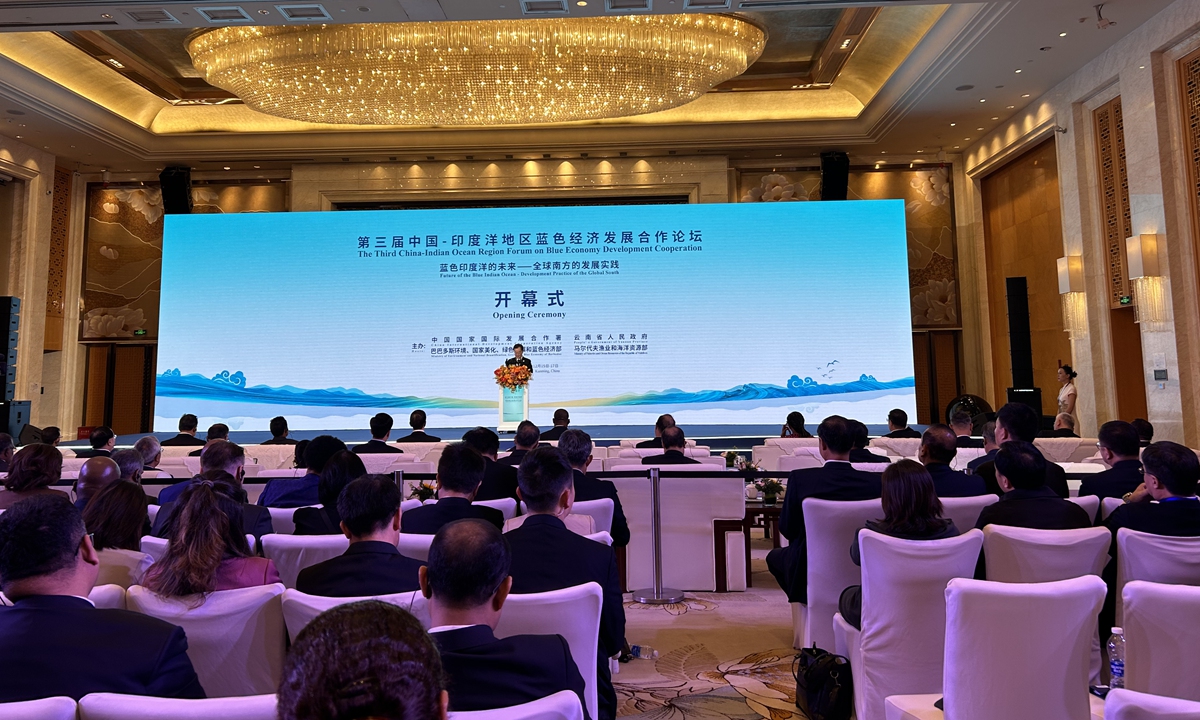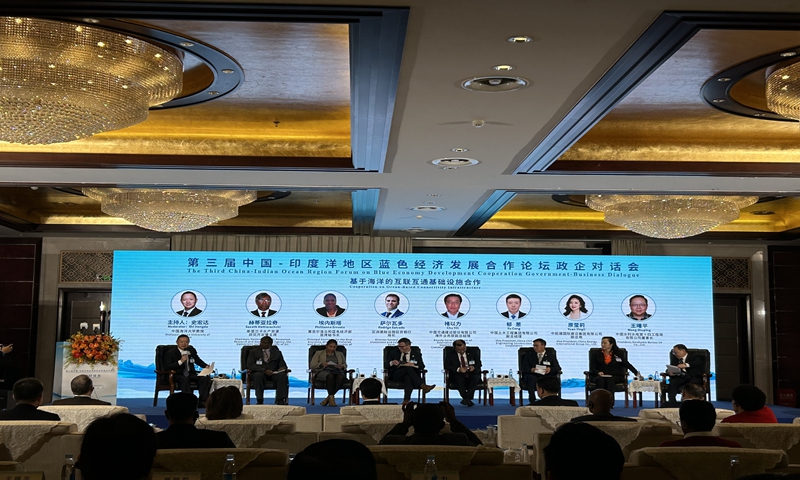
The opening ceremony of the third China-Indian Ocean Region Forum on Blue Economy Development Cooperation is held on December 16, 2024 in Kunming, Southwest China's Yunnan Province. Photo: Zhang Han/GT
The third China-Indian Ocean Region Forum on Blue Economy Development Cooperation was held from Sunday to Tuesday with the launch of a global development project pool information management system, and the inauguration of China-Indian Ocean region center for maritime cooperation and training.Under the theme of "the Future of the Blue Indian Ocean Development, Practices of the Global South", the forum was hosted by China International Development Cooperation Agency, Yunnan government, Maldives Ministry of Fisheries and Ocean Resources and Barbados' Ministry of Environment and National Beautification, Green and Blue Economy.
Delegates from more than 20 governments as well as representatives of international organizations, local governments, enterprises and think tanks attended the forum.
Agreements on building projects for early warning and response to climate-induced disasters in Pakistan and the Maldives were also signed on Monday.
China has established normalized cooperation mechanisms with 17 Indian Ocean region countries, and cooperation is being carried out in fields including remote sensing, maritime monitoring and research, biodiversity and disaster reduction, according to the meeting organizer.
Luo Zhaohui, head of the China International Development Cooperation Agency, pointed out in his speech that this forum aims to convey three key messages: "Blue," "Action," and "Unity." The blue economy has become a top priority in important policy documents such as the United Nations 2030 Sustainable Development Goals, the Ocean Decade, the Global Development Initiative, and the African Union Agenda 2063.
Developing the blue economy of the Indian Ocean and achieving sustainable development in the region require collective and immediate action from all parties, Luo noted.
As a member of the "Global South," China has always shared the same fate with regional countries, especially small island nations, he said.
During the annual forum, representatives of regional countries have discussed extensive topics on the blue economy and sustainable development.
Vice President of Maldives Hussain Mohamed Latheef said at the forum that tourism and fishing, two pillars of the country's economy, are severely affected by climate change, ocean pollution, and illegal, unreported, and unregulated fishing.
Maldives is committed to making 33 percent of its electricity from renewable energy by 2028. Achieving a just climate transition that meets the diverse needs of different countries is essential for mitigating global warming and protecting marine biodiversity, which is also crucial for the blue economy of vulnerable nations, Latheef said.
India and China, as two ancient nations, should be guided by the wisdom of our civilizations and set a new, inspiring example of cooperation, Sudheendra Kulkarni, a close aide to former Indian prime minister Atal Bihari Vajpayee and the founder of the Forum for a New South Asia, told the Global Times on Monday.
Such cooperation can benefit smaller and island countries in the region that are in need of infrastructure, technologies and talent to develop the blue economy, Kulkarni said.
Kulkarni mentioned an example of how Chinese companies helped regional countries build smart ports and a warehouse in their development of the e-commerce industry, making it more accurate and efficient.
According to the forum, Pakistan's first smart distribution center, built by a Chinese firm, has reduced the error rate from 1 percent down to less than 3 out of 10,000 parcels.
Karuna Singh, Regional Director Asia for Earth Day Network, spoke from an environmentalist's perspective, saying that all countries, India and China included, should know that there are no political boundaries when it comes to the environment.
Since both countries are doing well in renewable energy, in their education policies (on environmental protection), they should stand out and become examples for other countries to emulate, Singh told the Global Times.

